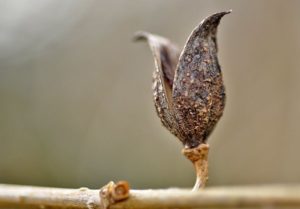Forsythia Fruit is a plant. The fruit is used for medicine.
Contents
Uses
- The leaves are febrifuge and are also poultice onto ulcerated glands and haemorrhoids. A decoction of the leaves and twigs is used in the treatment of breast cancer.
- Extracts of forsythia fruit are now also used in numerous types of cosmetic products, including hair care (e.g., hair growth liniments and antidandruff shampoos), skin care (e.g., acne cream) and foot care (e.g., athletes’ foot) products for their antimicrobial and traditional detoxifying properties.
Benefits
- The forsythia fruit occupies a very important position in traditional Chinese medicine. It was known for its potent antiviral properties, which explains its use as a first line of defense against colds and flu. The ancient Chinese also used theforsythia fruit to alleviate the symptoms of fever, coughs and chest pain.
- In Western medicine, the first recorded use of the forsythia fruit was in an herbal book dated 1789. Although little scientific study has been done on the health benefits of the forsythia fruit, the anecdotal evidence that stretches back thousands of years continues to provide a strong foundation for the medicinal properties of the plant in modern times.
Cautions
- It is not known if forsythia is safe when taken by mouth. There is some information that an injectable form might be safe when used in children.
- Special Precautions & Warnings:
Pregnancy and breast-feeding: Not enough is known about the use of forsythia during pregnancy and breast-feeding. Stay on the safe side and avoid use.
- Surgery: Because forsythia might slow blood clotting, there is a concern that it might cause extra bleeding during and after surgery. Stop taking forsythia at least two weeks before a scheduled surgery.
Interactions
- Medications that slow blood clotting (Anticoagulant / Antiplatelet drugs) interacts with FORSYTHIA
- Forsythia might slow blood clotting. Taking forsythia along with medications that also slow clotting might increase the chances of bruising and bleeding.
- Some medications that slow blood clotting include aspirin, clopidogrel (Plavix), diclofenac (Voltaren, Cataflam, others), ibuprofen (Advil, Motrin, others), naproxen (Anaprox, Naprosyn, others), dalteparin (Fragmin), enoxaparin (Lovenox), heparin, warfarin (Coumadin), and others.
Other names
Forsitia, Forsythia de Paris, Forsythia Fructus, Forsythia koreana, Forsythia suspensa, Forsythia Suspensa Fructus, Forsythia Suspensa Vahl, Forsythia viridissima, Fructus Forsythiae, Fructus Forsythiae Suspensae, Golden Bell, Lian Qiao, Lien Chiao, Mimosa de Paris, Rengyo, Syringa suspensa, Weeping Golden Bell
References
Source: WebMD, http://www.webmd.com/vitamins-supplements/ingredientmono-1103-forsythia.aspx?activeingredientid=1103&activeingredientname=forsythia
Healthy Benefits, http://healthybenefits.info/the-health-benefits-of-forsythia-fruit/
Animalelement, http://www.animalelement.com/equine/immune-69.html
Image source: http://www.animalelement.com/equine/immune-69.html

